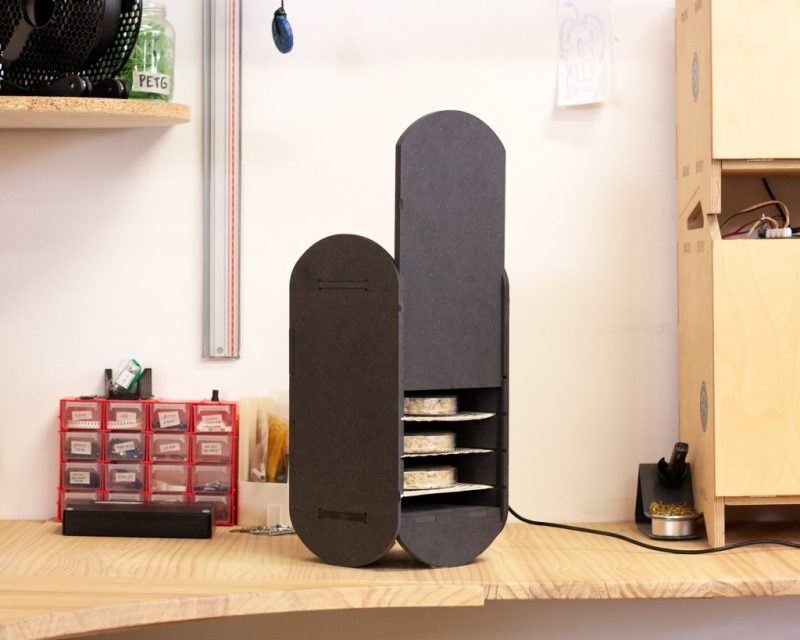Domingo Club
Hard to think of something more Fab City than this lovely project! The team behind Domingo Club wants to “promote plant proteins and create the tools for everyone to make them at home, for the benefit of our planet.” The project started with them winning a 2021 Distributed Design award for their open-source fermentation incubator. The prize money helped them to set up a mini fab lab (fabrication laboratory) and rent a studio, everything they make and sell is made in their fab lab. They open-source everything, the plans for the award-winning incubator, the software for the electronics to run it, and the 3D forms for their tempeh moulds, all available on their Github account.
By the way:
Tempeh is an Indonesian fermented food product originally made out of soy beans. The taste of tempeh evokes aromas of mushrooms, nuts and yeast, and its texture is firm, chunky and “meaty”. And it’s absolutely delicious!
During the fermentation, the fungus feeds on the soybeans and grows in the space around them, binding them together with pure white molds (mycelium). This process breaks down the molecules of the beans and this pre-digestion allows us to absorb many more nutrients from them. That makes tempeh as rich in protein and iron as meat. It is also higher in fibre and calcium while being lower in saturated fat and salt.

Finally, they share some of their thinking and news in their Journal, including a recent post on calm technology, which gives an even better idea of their philosophy for technology, going against the grain of some of the excess of the tech industry.
We need technological help to grow tempeh in places where the climate is not suitable for its growth. The idea of our fermenter is to replicate the Indonesian climate, to cooperate with nature and help it to help us. But the technology for our device doesn’t need to be intrusive, connected to the internet, track our habits or consume more energy than it actually needs. It just needs to produce heat according to what the growth of the mycelium requires. Only a few components are needed. A few components that we can understand, repair and improve if necessary. A few components that reconcile open-source technology with citizens and our food production. We like to call it calm technology. [Emphasis mine.]
Images: Domingo Club 2022 CC BY-NC-SA 4.0.
